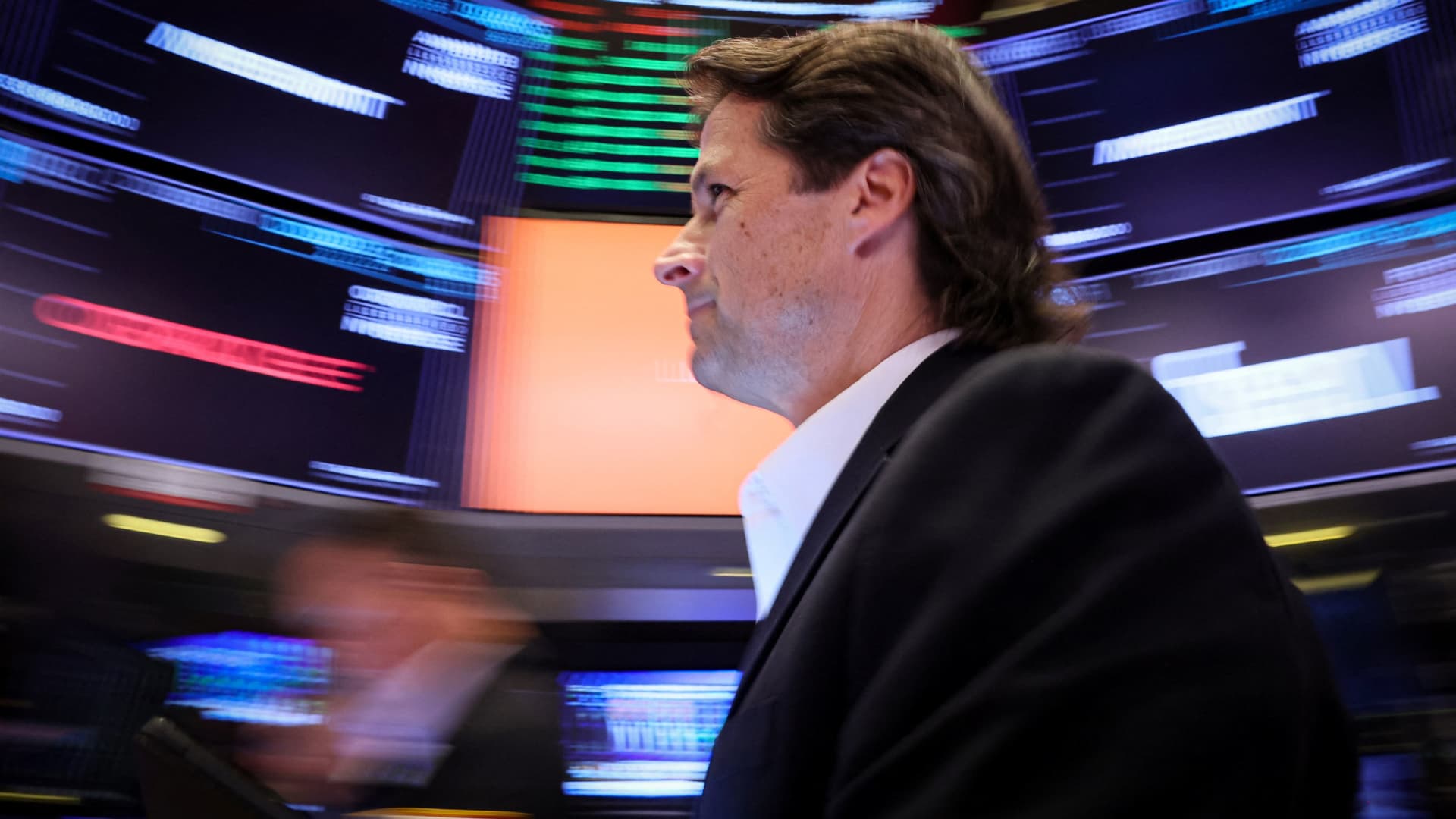Traders work on the floor of the New York Stock Exchange (NYSE) in New York City, August 29, 2023.
Brendan McDermid | Reuters
This report is from today’s CNBC Daily Open, our new, international markets newsletter. CNBC Daily Open brings investors up to speed on everything they need to know, no matter where they are. Like what you see? You can subscribe here.
What you need to know today
Fuel to the fire
Oil prices surged to their highest in over a year during Asian trading hours. Futures for West Texas Intermediate crude rallied around 1% to $94.61 while Brent added 0.86% to $97.38. The spike in price’s largely because of a report that crude inventories in Cushing, Oklahoma fell close to their operational minimum.
Exchange suspends Evergrande
Shares of China Evergrande Group were suspended Thursday. The move comes after Bloomberg reported that Evergrande’s chairman was placed under police surveillance. On Wednesday, Evergrande reported a loss attributable to shareholders of 33 billion yuan ($4.15 billion) for the six months ended June. Total net loss for 2021 and 2022 hit $82 billion.
Meta doubles down on the metaverse
Meta announced Quest 3, the latest version of its virtual reality headset. Available for $499 — $200 more expensive than the Quest 2 — the headset includes a feature called “passthrough” that allows users to see the world outside quickly. At the company’s event, Meta also announced new artificial intelligence software and digital assistants modeled by celebrities.
[PRO] Real yields, real losses
It’s not just U.S. Treasury yields that have been hitting surging lately. Real yields — that is, the yield after factoring in inflation — are also at their highest in decades. That spells trouble for global stocks that have “long duration exposures,” according to Morgan Stanley.
The bottom line
September’s story hasn’t changed: High yields and oil prices are dragging down stocks. But a twist in the story — a potential and increasingly unavoidable U.S. government shutdown — is making it truly difficult for stocks to have any confidence to climb.
Let’s look at each factor in turn.
Yields on the U.S. 10-year Treasury breached 4.6%, while that of the 2-year Treasury inched up to 5.137% yesterday. If yields continue on their upward trend, it’s likely they’d trigger fresh fears of recession as the cost of borrowing increases.
Rising Treasury yields aren’t the only costs weighing on the economy — oil prices are surging again. As oil is an input cost for so many components of the economy — from the obvious like gasoline for vehicles, to the more unexpected like food and grocery prices — there’s a possibility companies and consumers will cut back on spending.
Last, a government shutdown means economic data will be delayed, hobbling a Federal Reserve that’s repeatedly said it’s “data-dependent.” With interest rates the highest they’ve been in more than 20 years, even the most careful calibration will have an outsized impact on the economy. Going at it blind — through no fault of the Fed’s — won’t inspire confidence in markets.
And a shutdown risks another downgrade by ratings agencies. Indeed, the U.S. is weaker now, fiscally speaking, than it was in 2011 when S&P Global Ratings downgraded the country’s long-term credit rating from AAA to AA+, said John Chambers, former chairman of S&P’s ratings committee.
Even though September’s already ending, things, as BTIG’s Jonathan Krinsky puts it, “are likely to remain messy.”

